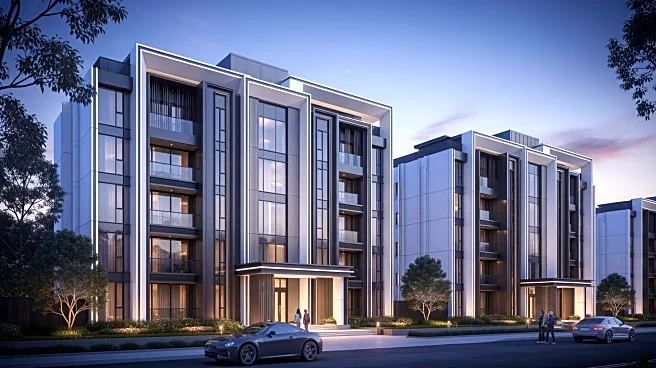What's Happening?
Serbian lawmakers have passed a special law enabling the development of a luxury compound in Belgrade, financed by an investment company linked to President Trump's son-in-law, Jared Kushner. The project
aims to transform a former Yugoslav army headquarters, damaged during a NATO bombing in 1999, into a high-rise hotel, luxury apartments, offices, and shops. Despite the government's support, the project has faced significant opposition due to its historical and architectural significance. The Serbian government had previously removed the site's protected status, but the project stalled due to an investigation into potential document forgery. The new law, known as Lex Specialis, allows the project to proceed, despite protests and legal challenges.
Why It's Important?
The approval of this project highlights the ongoing tension between economic development and historical preservation in Serbia. The project is seen as a potential boost to the Serbian economy and a means to strengthen ties with the U.S. administration. However, it has sparked public outcry and accusations of corruption, as critics argue it undermines Serbia's legal system and cultural heritage. The controversy reflects broader issues of governance and transparency in Serbia, where anti-NATO sentiments remain strong due to historical grievances. The development also raises questions about the influence of foreign investments in national projects and the potential impact on Serbia's political landscape.
What's Next?
The project is expected to move forward with the demolition of the existing structures, despite ongoing protests and legal scrutiny. The Serbian government and Kushner's company will likely face continued opposition from cultural preservationists and political opponents. The situation may also attract international attention, given the involvement of a high-profile U.S. figure and the historical context of the site. The project's progress will be closely monitored by both domestic and international stakeholders, as it could set a precedent for future developments in Serbia and the region.
Beyond the Headlines
The development of the luxury compound in Belgrade could have long-term implications for Serbia's cultural identity and its relationship with Western nations. The project may influence future urban planning and heritage conservation policies in the country. Additionally, the involvement of Kushner's company highlights the complex interplay between politics and business in international real estate ventures. The situation underscores the challenges faced by countries balancing economic growth with the preservation of historical and cultural landmarks.









